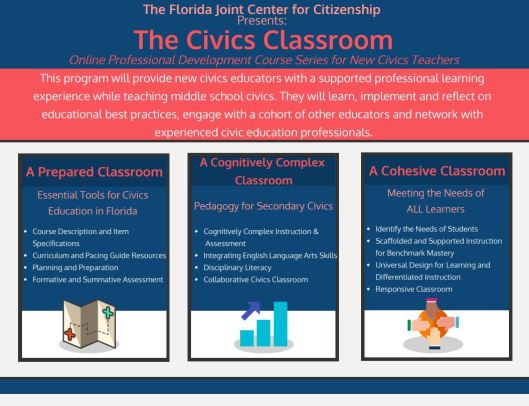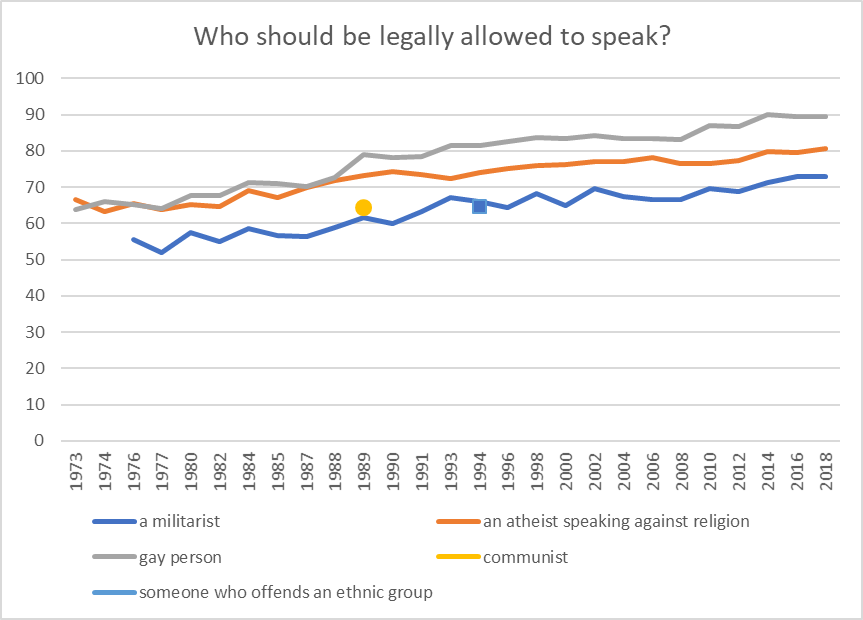This week’s list of upcoming D&D webinar events has a great line-up including NCDD sponsor The Courageous Leadership Project, NCDD member orgs National Civic League and Living Room Conversations as well as, from the International Associate for Public Participation (IAP2) and International Association of Facilitators (IAF).
NCDD’s online D&D event roundup is a weekly compilation of the upcoming events happening in the digital world related to dialogue, deliberation, civic tech, engagement work, and more! Do you have a webinar or other digital event coming up that you’d like to share with the NCDD network? Please let us know in the comments section below or by emailing me at keiva[at]ncdd[dot]org, because we’d love to add it to the list!
Upcoming Online D&D Events: The Courageous Leadership Project, National Civic League, Living Room Conversations, IAP2, IAF
Living Room Conversations Training (free): The Nuts & Bolts of Living Room Conversations

Thursday, August 8th
2 pm Pacific, 5 pm Eastern
Join us for 90 minutes online to learn about Living Room Conversations. We’ll cover what a Living Room Conversation is, why we have them, and everything you need to know to get started hosting and/or participating in Living Room Conversations. This training is not required for participating in our conversations – we simply offer it for people who want to learn more about the Living Room Conversations practice.
Space is limited so that we can offer a more interactive experience. Please only RSVP if you are 100% certain that you can attend. This training will take place using Zoom videoconferencing. A link to join the conversation will be sent to participants the day before the training.
REGISTER: www.livingroomconversations.org/event/training-free-the-nuts-bolts-of-living-room-conversations-14/
Online Living Room Conversation: Mental Health – 90-Minute Conversation w/ Optional 30-Minute Q & A with Hosts!

Thursday, August 8th
4 pm Pacific, 7 pm Eastern
Most people agree that we want to reduce the stigma around mental health issues so that individuals and families are more inclined to seek help. Many people look to traditional western medicine for the primary answers to mental health problems. There is growing interest in exploring a wider variety of ways to support people facing mental health challenges. The value of meditation, exercise and other practices show great promise as we learn more and more about the plasticity of our brains. What does it mean to ‘get better’ from a mental health problems, and is it even possible? Here is the conversation guide.
REGISTER: www.livingroomconversations.org/event/mental-health-90-minute-conversation-w-optional-30-minute-q-a-with-hosts/
IAP2 Monthly Webinar: Victoria Encore – “Navigating The Culture Wars Through Thoughtful P2”
 Tuesday, August 13th
Tuesday, August 13th
11 am Pacific, 2 pm Eastern
Once again, we’re excited to present one of the session presentations at the 2018 IAP2 North American Conference, that attendees told us would make a good Learning Webinar. In this, John Godec MCP3, Debra Duerr and Wendy Green-Lowe CP3 of The Participation Company, and Doug Sarno MCP3 of Forum Facilitation Group discuss delving into understanding of human behavior, the battle for control, and toxic participants and how we approach these issues as P2 practitioners.
It’s never been easy, but to be successful these days, we need to adjust to a hyper political and partisan environment. This session will explore the key battles we face in designing and conducting successful participation. We’ll discuss creating a level playing field, creating trust and facilitating success: what are the obstacles, and what are our “big guns”?
REGISTER: https://iap2usa.org/event-3166256
Online Living Room Conversation: (NC residents only) Reconnecting Across Differences in North Carolina

Wednesday, August 14th
4 pm Pacific, 7 pm Eastern
North Carolinians feel that disconnection from each other is the biggest issue facing our state, and they want to do something about it. This trend was discovered by NC State’s Institute for Emerging Issues, and ReCONNECT NC is their initiative to address it through a series of conversations and events around the state. These conversations are designed to invite North Carolinians from different backgrounds and perspectives to spend time together in real and rich conversation in which all listen first to understand.
This specific video-based “Reconnecting Across Differences in North Carolina” helps kick off ReCONNECT NC Day in collaboration with Living Room Conversations. Our mutual goal for these conversations is to build understanding and relationships and identify opportunities to bridge divides in North Carolina.
REGISTER: www.livingroomconversations.org/event/nc-residents-only-reconnecting-across-differences-in-north-carolina/
International Association of Facilitators webinar – ¿Qué pueden hacer los facilitadores en caso de desastre? (Español-Spanish)
 Thursday, August 15th
Thursday, August 15th
3 pm Pacific, 6 pm Eastern
Este webinar, ofrecido gracias al apoyo de la organización Global Facilitators Serving Communities (GFSC). Facilitadores: Maria Francia Utard and Ximena Combariza.
REGISTER: www.iaf-world.org/site/events/what-facilitators-can-do-disaster-situations-espanyol
Online Living Room Conversation: Righteousness and Relationships – 90-Minute Conversation w/ Optional 30-Minute Q & A with Hosts!

Thursday, August 15th
4 pm Pacific, 7 pm Eastern
Racist, sexist, homophobe, even nazi: these words have lost their power for many conservatives. They don’t believe that these words describe them. They experience this as name-calling – part of an ongoing effort to undermine people on the right who have different values. Latte drinking liberal, femi-nazi, elitist: these are a few of the words that are used to dismiss people on the left. So now we are caught in a culture war where we are all losing. Losing friends, losing family, losing the ability to solve problems in a way that respects and honors the needs of everyone affected. How do we change this dynamic? Is there a way for us to tap into the kindness and goodwill that we’ve seen in friends across the political spectrum? Here is the conversation guide.
REGISTER: www.livingroomconversations.org/event/righteousness-and-relationships-90-minute-conversation-w-optional-30-minute-q-a-with-hosts/
The Courageous Leadership Project webinar – Brave, Honest Conversations
 Wednesday, August 21st
Wednesday, August 21st
9 am Pacific, 12 pm Eastern
Some conversations are hard to have. Fear and discomfort build in your body and you avoid and procrastinate or pretend everything is fine. Sometimes you rush in with urgency, wanting to smooth things over, fix them, and make them better. Sometimes you go to battle stations, positioning the conversation so you have a higher chance of being on the “winning” side. NONE OF THIS WORKS. Instead, it usually makes a hard conversation harder; more divided, polarized, and disconnected from others. The more people involved, the harder the conversation can be. I believe that brave, honest conversations are how we solve the problems we face in our world – together.
In this webinar, we will cover: What is a Brave, Honest Conversation ? Why have one? What can change because of a brave, honest conversation? How do you have one? What do you need to think about and do? How do you prepare yourself for a brave, honest conversation?
? Why have one? What can change because of a brave, honest conversation? How do you have one? What do you need to think about and do? How do you prepare yourself for a brave, honest conversation?
REGISTER: www.bravelylead.com/events/bhcfreewebinar
Living Room Conversations Training (free): The Nuts & Bolts of Living Room Conversations

Thursday, August 22nd
2 pm Pacific, 5 pm Eastern
Join us for 90 minutes online to learn about Living Room Conversations. We’ll cover what a Living Room Conversation is, why we have them, and everything you need to know to get started hosting and/or participating in Living Room Conversations. This training is not required for participating in our conversations – we simply offer it for people who want to learn more about the Living Room Conversations practice.
Space is limited so that we can offer a more interactive experience. Please only RSVP if you are 100% certain that you can attend. This training will take place using Zoom videoconferencing. A link to join the conversation will be sent to participants the day before the training.
REGISTER: www.livingroomconversations.org/event/training-free-the-nuts-bolts-of-living-room-conversations-15/
International Association of Facilitators webinar – Becoming a CPF with the IAF
 Thursday, August 22nd
Thursday, August 22nd
3 pm Pacific, 6 pm Eastern
Making the decision to seek the IAF Certified Professional Facilitator (CPF) accreditation can be hard. Common questions people ask are What’s involved? How much time will it take? Will I meet the requirements? and What if I don’t pass? In response to strong interest from members, we will be exploring these questions at a webinar with hosts that have years of experience as professional facilitators and as IAF Assessors.
Professional Facilitator (CPF) accreditation can be hard. Common questions people ask are What’s involved? How much time will it take? Will I meet the requirements? and What if I don’t pass? In response to strong interest from members, we will be exploring these questions at a webinar with hosts that have years of experience as professional facilitators and as IAF Assessors.
REGISTER: www.iaf-world.org/site/events/webinar-becoming-cpf-iaf-11
Online Living Room Conversation: Homelessness – 90-Minute Conversation w/ Optional 30-Minute Q & A with Hosts!

Thursday, August 22nd
4 pm Pacific, 7 pm Eastern
Homelessness in America is a problem that reminds us daily of our failure to be our best. How do we explain to children the presence of hungry, cold, neglected and often mentally ill men women and children on our streets in the midst of plenty? If we gather neighbors, business owners, health care workers, police, government officials, homeless people and their families in conversation might we build trust and begin to explore opportunities to do better? Conversations are admittedly only a starting point, but isn’t it time to start? Here is the conversation guide
REGISTER: www.livingroomconversations.org/event/homelessness-90-minute-conversation-w-optional-30-minute-q-a-with-hosts/
National Civic League AAC Promising Practices Webinar – Improving Health and Fitness through Inclusive Community Challenges
 Wednesday, August 28th
Wednesday, August 28th
11:30 am Pacific, 2:30 pm Eastern
Join the National Civic League to learn how two of our 2019 All-America Cities are using community recreation challenges to improve health & fitness. Battle Creek, MI will tell us about Operation Fit, which is a healthy community initiative of Bronson Battle Creek, the Battle Creek Community Foundation, Regional Health Alliance, and the Battle Creek Family YMCA. The goal of Operation Fit is to decrease childhood obesity in Calhoun County.
REGISTER: www.nationalcivicleague.org/resource-center/promising-practices/




 We’re thrilled to announce that PBP is launching a new global hub for PB practitioners and advocates, thanks to a $560,000 grant from the
We’re thrilled to announce that PBP is launching a new global hub for PB practitioners and advocates, thanks to a $560,000 grant from the 







 Tuesday, August 13th
Tuesday, August 13th Thursday, August 15th
Thursday, August 15th
 Wednesday, August 21st
Wednesday, August 21st